Photo: Ford Fairchild
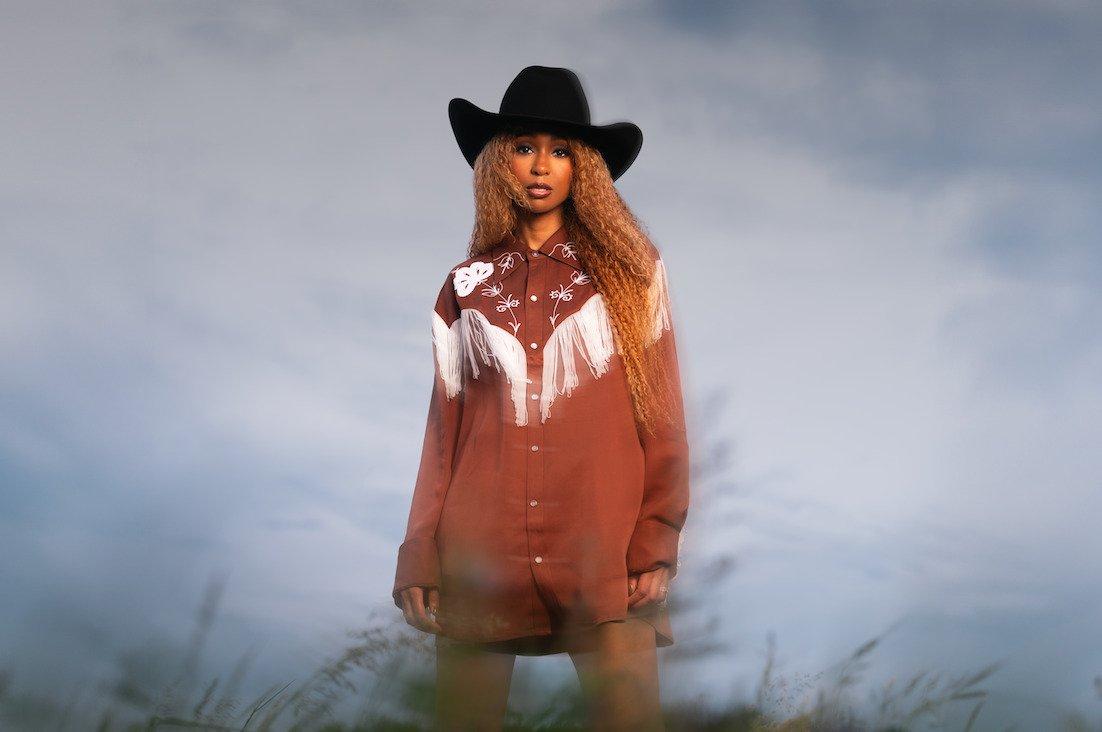
feature
How Tiera Kennedy's 'Rooted' Helped Her Turn Rejection Into Empowerment
The rising country star's debut album sees her doubling down on the "R&B country" sound she was once told wouldn't work: "I get so much more from telling my truth."
2024 is the year that Tiera Kennedy never saw coming.
Last winter, the 26-year-old rising country artist was dropped from Big Machine Records. Then, in a twist of fate, Kennedy wound up working with Beyoncé on two songs months later and watched her first-time Spotify listens jump by 110 percent, inspiring her to fast-track the release of her debut album, Rooted.
"My relationship with God has strengthened so much because it has been a crazy year and not something anyone could ever dream up. It really feels like hard work has met opportunity," Kennedy tells GRAMMY.com. "It's easy to lose sight of who you are when you get a big team and there are a lot of different opinions going around. I was told that I wouldn't work, so I was determined to make them see that I will."
Kennedy started working on her aptly titled debut album while she was still signed to Big Machine, but it has since taken on a new meaning as her life has changed drastically over the past year. She's feeling more confident in herself and what she brings to country music, and she's unapologetic about it on the LP.
"The first time around, the album [was] more so about telling my story through these songs, and after leaving the label, Rooted became the actual definition of the word, which means to stand firm," she explains. "The overall sentiment of the album is: If you're not here for Tiera and all that I am, peace out."
The album's lead single, "I Ain't a Cowgirl," best represents Kennedy's hard-fought journey as she trades in self-doubt for an empowering message: "Gonna wrangle fear, cry my last tear/ And stare tomorrow right in the face/ There ain't a damn thing that's gonna stop me/ Gonna grab life by the reins," she sings in the second verse before declaring, "I ain't a cowgirl but I'm gonna be one today."
"I wasn't as vocal about the broken parts of life I was going through because I thought people would see that and not see confidence, but seeing how it affects people makes it worth it," she says. "I get so much more from telling my truth and being okay with not being perfect."
In a similar vein, one of the closing tracks, "Sweet Home Alabama" (not to be confused with Lynyrd Skynyrd's 1974 classic) honors Kennedy's Southern roots, but also explores the bittersweet feeling of outgrowing her hometown as she steps into her most fearless era yet. "I'd get lost if I headed South and I tried to find my way around/ 'Cause I'm out of touch with the place where I grew up/ And my roots just don't run as deep now," she sings in the opening verse.
"There's a stark difference between the person I am today and the person that I was when I was living in Alabama, so sometimes when I go home, I feel a little disconnected," says Kennedy, who has been in Nashville for eight years. "But it's also beautiful because I feel a connection to my younger self."
Elsewhere, melodramatic kiss-off songs "Keep Your Promises" and "You Don't Get It" would make Miranda Lambert proud, whereas "I'd Look Good In That Truck" and "Can't Help My Country" offer your typical country fare with warm lyrics about long talks on the front porch, magnolia flowers and being raised on the music of Charley Pride and Dolly Parton.
Kennedy is part of the latest wave of Black country stars — including Shaboozey, Tanner Adell and BRELAND, among many others — who have been challenging the concept of traditional country music and forcing the industry to get on board. Influenced by the R&B music she grew up with, Kennedy incorporates soulful vocal runs and blues-inspired guitar riffs into her sound — resulting in songs that both genuinely excite her and broaden her audience.
"I'm finally comfortable with not being straight down the middle country. When we would get into the writers' room, we would try to make it country enough so no one comes after us," Kennedy says. "But we let all that go with [Rooted] and the new music I'm writing. This music is the most vulnerable I've ever been because I didn't put myself in a box. I didn't put any perimeters around anything."
That newfound freedom shows up in one of her latest singles, "Cry" — which samples Justin Timberlake's Timbaland-produced "Cry Me a River" — as well as "Damn, If He Don't Love Me," which features "American Idol" season 6 winner and soulful pop star artist Jordin Sparks.
Kennedy is calling the shots like never before, but she's always stood firm in her dreams of becoming country music's next superstar. In high school, she taught herself to play guitar by watching YouTube videos, and performed at places like Chick-fil-A and Buffalo Wild Wings. She says she "started writing songs because of Taylor Swift," but mustering up the courage to perform them in a room full of strangers took a while.
"My mom would tell people that I sing and ask me to sing for them on the spot, and I was like, Absolutely not. I just wanted to write my songs," she recalls. "I got nervous every single time I was on stage, but the more I wrote my own songs and the more I found my voice in each season I was in, the more confident I grew with showing that person on stage."
After high school, Kennedy attended the University of North Alabama on a full-ride scholarship, but spent more time honing her craft at FAME Studios in Muscle Shoals. In 2017, she convinced her parents to move to Nashville so she could pursue a career in country music, and she quit college after one year.
"I do not have one memory of my parents ever doubting me or being like, This may not work out," she says. "Even when I told them I wanted to do country music, they totally could've discouraged me since there's not a lot of people who look like me [in this genre], but they didn't. They made it a beautiful thing. They're like, Okay, this hasn't been done before, so let's do it."
Nearly two years after packing up her things and moving to Music City, a then-20-year-old Kennedy competed on the short-lived reality TV show "Real Country," where she met Shania Twain, who has since become one of her greatest mentors and champions. In a full-circle moment, just as Kennedy signed with Big Machine and her breakout song "Found It In You" was making waves, she honored Twain with a performance of her 1998 hit "From This Moment On" at the 15th Annual Academy of Country Music Honors in 2022. "Every time a moment like that comes along, I have to pinch myself," Kennedy says.
Fast forward two years later, and Kennedy is still pinching herself. She gets emotional when reflecting on this new season of her life. "When I attended the 2024 People's Choice Country Awards [in September], I sat right behind Little Big Town. I remember just looking around at everyone and thinking, I belong here," she shares.
That sense of belonging and confidence is now translating into her music, helping her create deeper connections with her growing fan base — and laying the groundwork for an exciting future.
"Our lives may look completely different, but we're all searching for love and community at the end of the day," she says. "I wasn't okay at one point, and I'm still not okay some days, but there is beauty on the other side. My eyes have opened up for the possibilities of what I can do going forward."
Latest News & Exclusive Videos
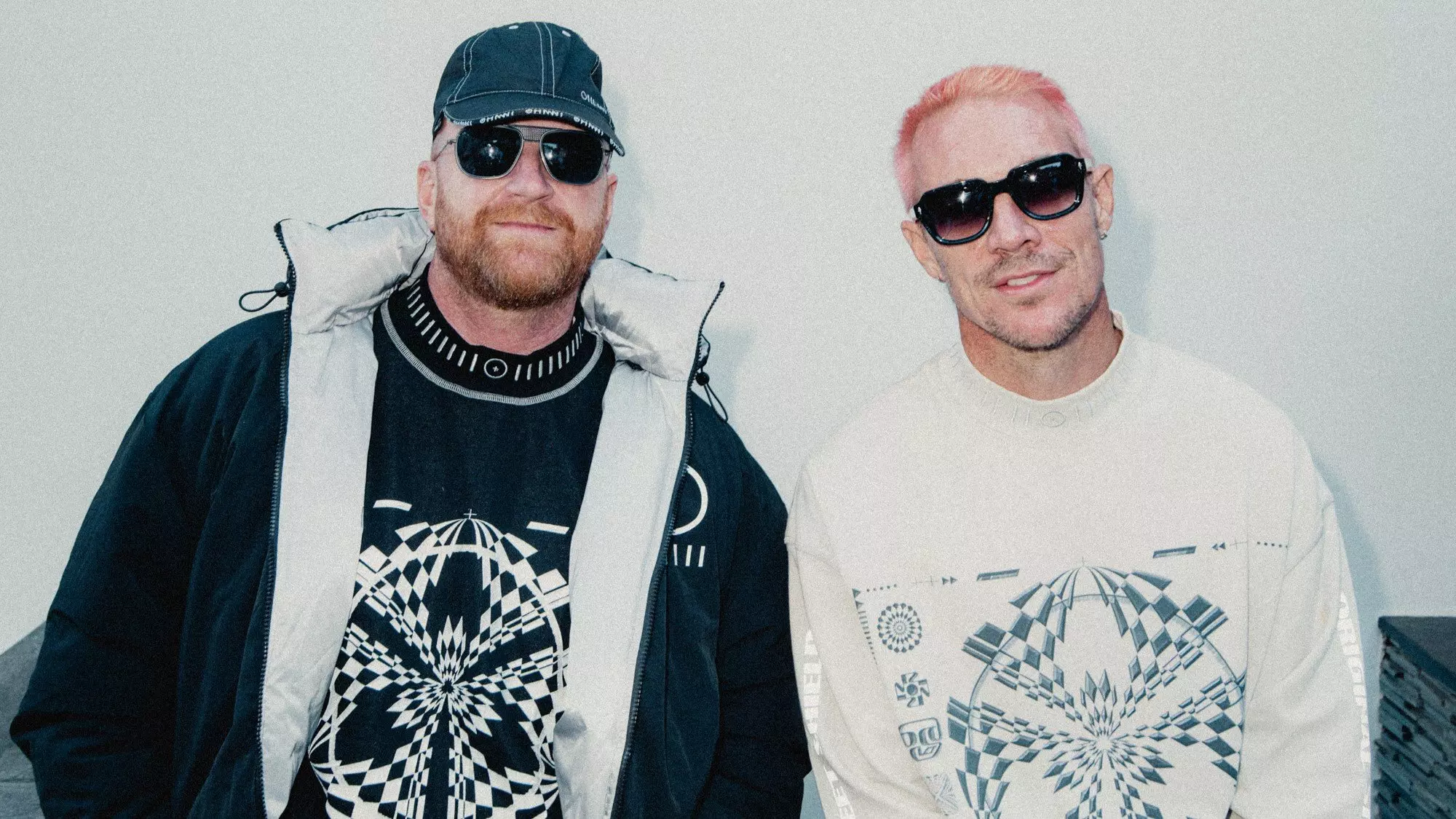
How Major Lazer's 'Guns Don't Kill People…Lazers Do' Brought Dancehall To The Global Dance Floor

YOASOBI Performs "Idol" | Global Spin
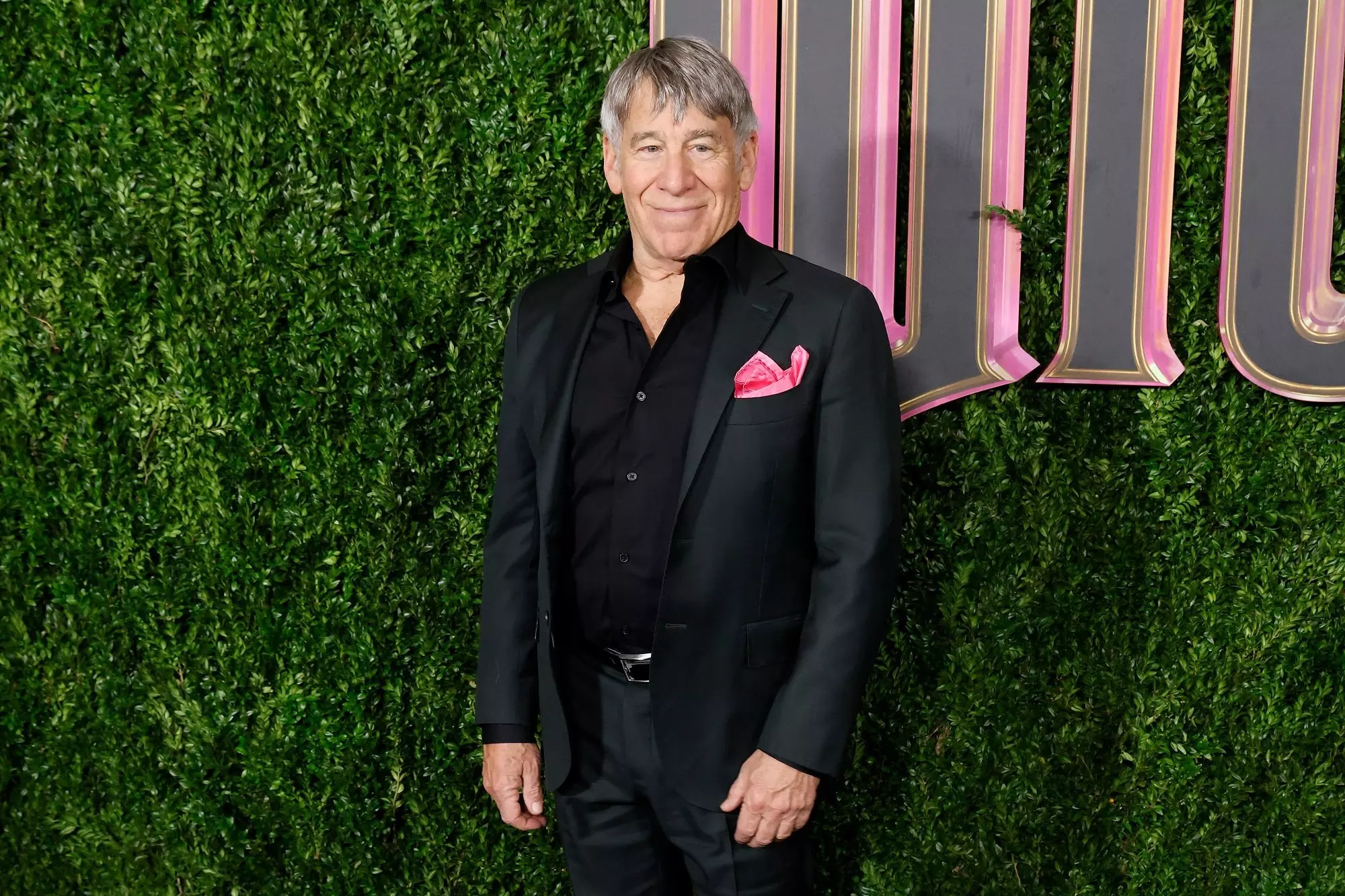
'Wicked' Composer Stephen Schwartz Details His Journey Down The Yellow Brick Road
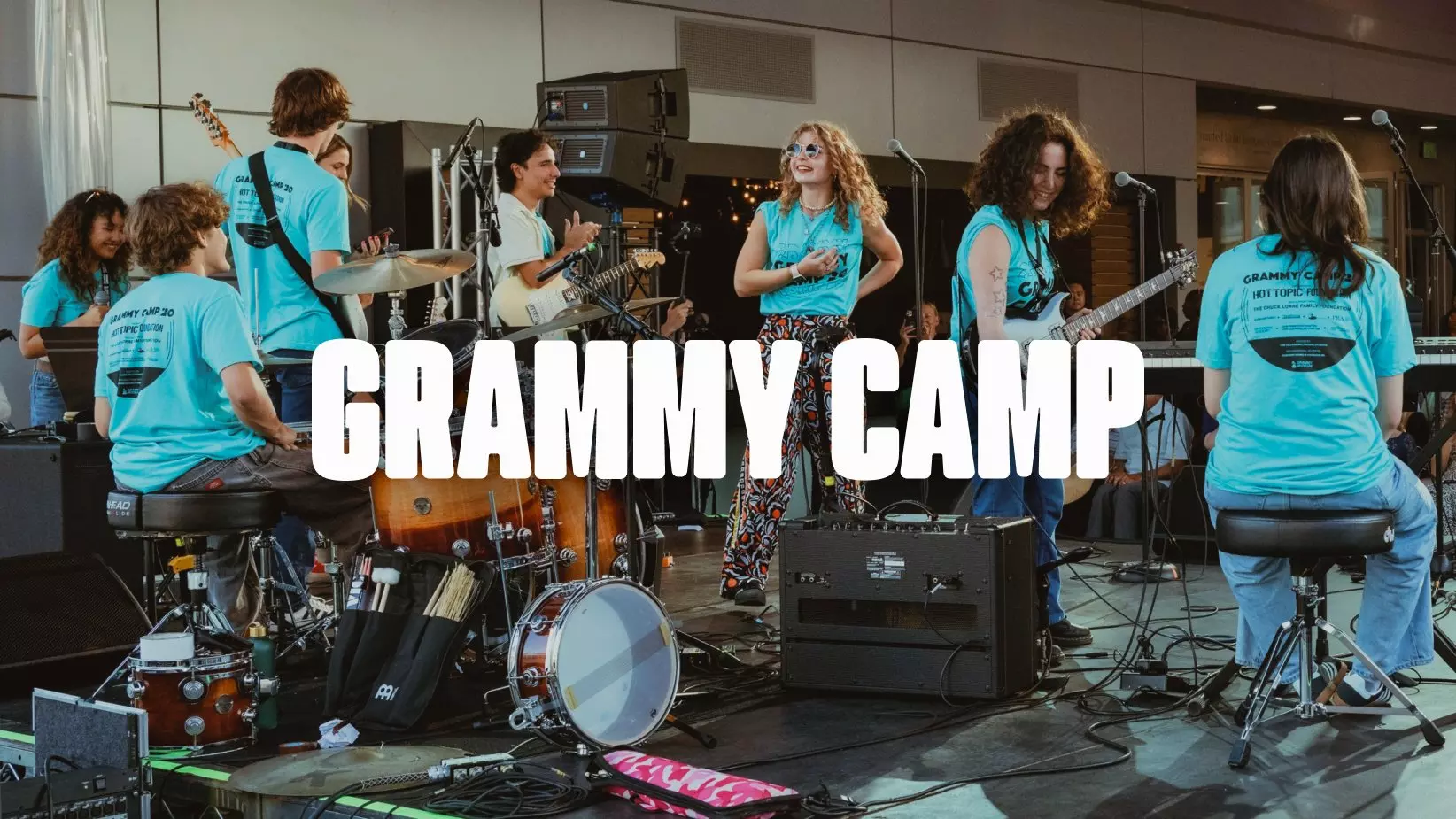
GRAMMY Museum Expands GRAMMY Camp To New York & Miami For Summer 2025
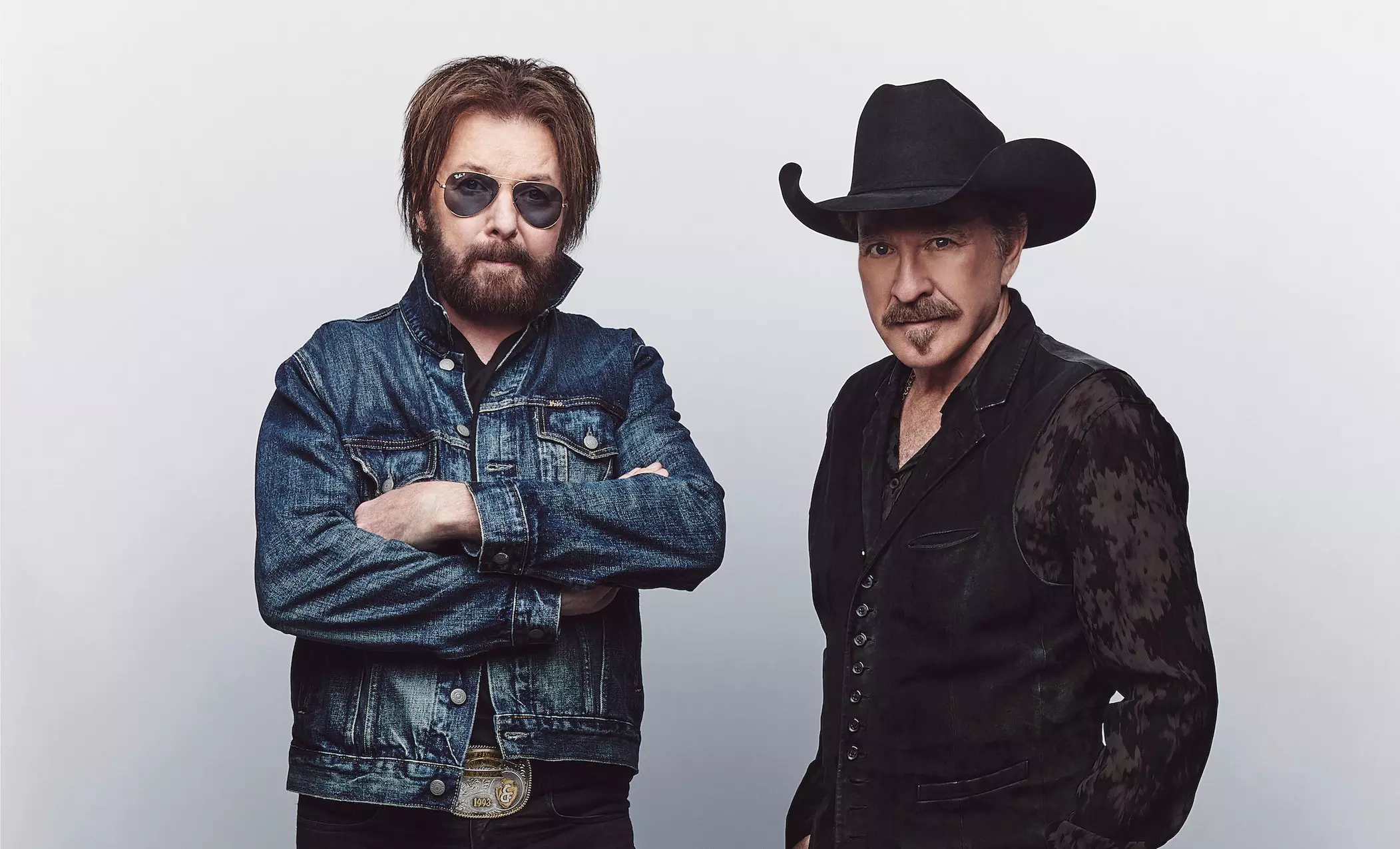
Living Legends: Brooks & Dunn On How 'Reboot II' Is A Continuation Of "Winging It From Day One"
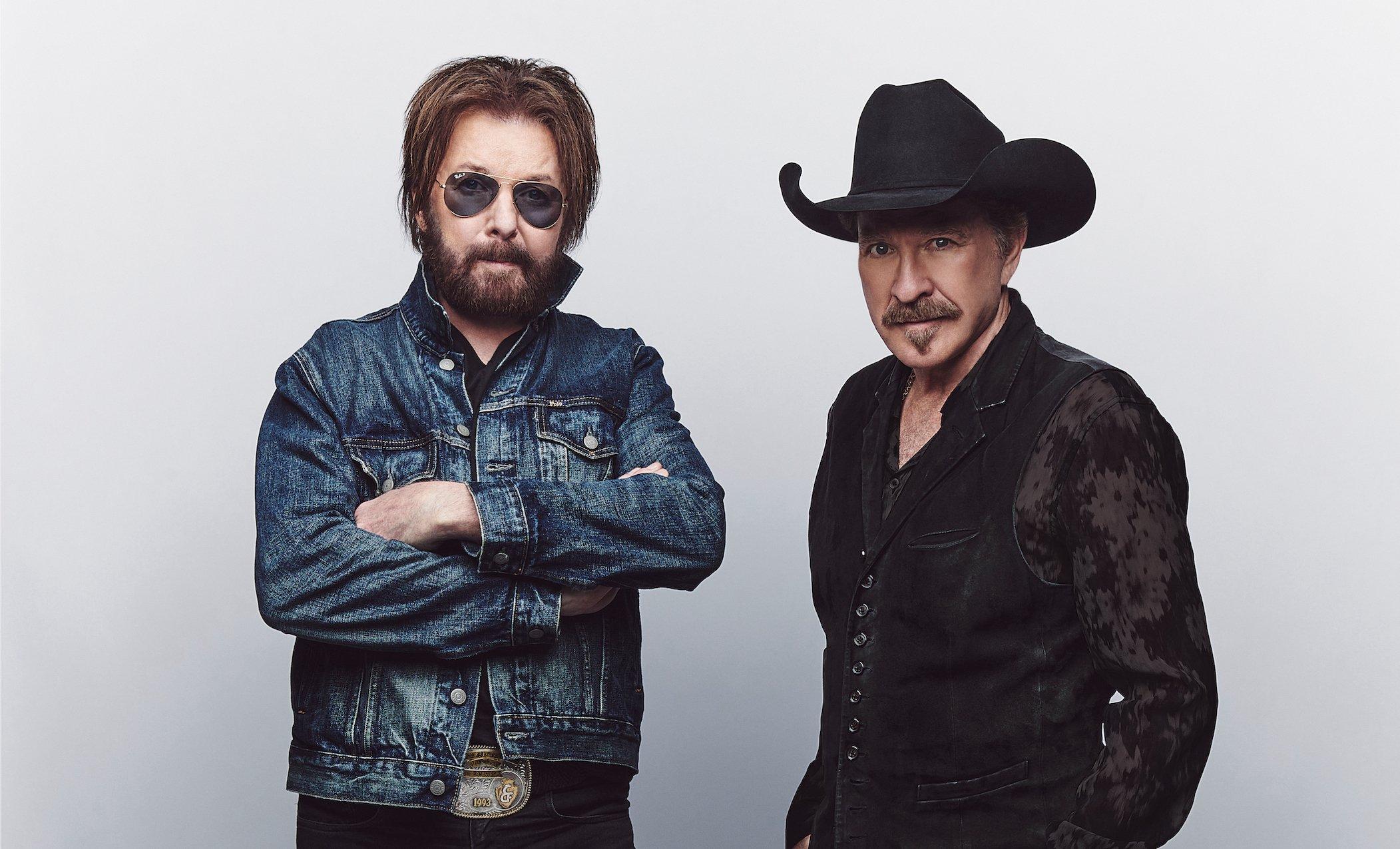
Photo: Matthew Berinato
interview
Living Legends: Brooks & Dunn On How 'Reboot II' Is A Continuation Of "Winging It From Day One"
The iconic country duo detail how their latest collaboration project — which includes covers by the likes of Jelly Roll, Lainey Wilson, Riley Green and more — came to be, and how it may have inspired them to continue the legacy they've built.
Since bursting onto the scene in 1991 with their debut single and No. 1 hit "Brand New Man," Brooks & Dunn have gone on to not only become country music icons, but an inspiration to countless artists that have followed them. That influence has led to not one, but two albums dedicated to their legacy: 2019's Reboot and Reboot II, which just dropped on Nov. 15.
While the first Reboot is filled with features from fellow country power players such as Luke Combs, Kacey Musgraves, and Thomas Rhett, Reboot II sees the duo dabbling with rock (Halestorm), bluegrass (The Earls of Leicester), and blues (Christone "Kingfish" Ingram). Of course, the 18-track Reboot II has plenty of country to it, too, with the likes of Lainey Wilson, Riley Green and other torchbearers of the modern country movement offering their takes on classics like "Play Something Country" and "She Used to Be Mine."
Between the two Reboot albums, 15 of Brooks & Dunn's 20 No. 1 hits are reimagined. Six songs appear on both, but certainly don't sound like reiterations; for one, "Boot Scootin' Boogie" went from a true-to-form collaboration with Midland on Reboot to a hard-rock thrasher by Halestorm on Reboot II. Whether the songs stick to the original blueprint or take on entirely different forms, the Reboot albums celebrate the timelessness and versatility of Brooks & Dunn's music — and as Kix Brooks insists, it gives the duo a hint of excitement more than three decades into their career.
"At least with this Reboot series people will be going, 'Holy crap, I can't believe they freaking did that!,'" Brooks tells GRAMMY.com. "At this point in our careers we want some kind of reaction, good or bad, so let's stir it up."
The two-time GRAMMY-winning duo caught up with GRAMMY.com to talk about their favorite moments from recording Reboot II, how the genre has changed since their breakthrough, and why there's a "good chance" new music may be on the way.
How'd the idea for this Reboot series start?
Ronnie Dunn: It was completely not our idea, but rather our manager's, Clarence, who never has a good idea [Laughs]. He did all the legwork, calling only once so to not pester people. If we didn't get a call back, that was fine, we'd just move onto the next one. But everyone he called got back to him and said they wanted in.
**There's a handful of songs — like "Neon Moon," "Indian Summer" and "Brand New Man" — that are on both Reboot I and II. What was the intention behind that?**
Dunn: It was more about the freedom of the other artists to choose whatever songs they wanted. We didn't dictate anything.
**On Reboot II, you went beyond the country realm. What was it like learning to navigate the songs in an entirely new way?**
Dunn: There's an adage that country music fans don't really embrace change that fast, and because of that, there's some stuff on this record that scared me at first.
At the same time, it's fun to go online on occasion to see the comments about the songs that have some saying, "That's wrong, it shouldn't be done that way," and others saying, "This is great stuff." There's a little danger element for us as a result, like, we could get kicked out of country music for two or three songs here [Laughs]. But it could also be the best way to earn a GRAMMY.
I think it's also evidence of how much your music and legacy is appreciated even outside of country music, when you have all these folks from other music circles involved and resonating with your songs.
Dunn: That's been a key for us, being able to go out and bring in new fans without alienating the steadfast group we have chasing us around now.
Kix Brooks: There's certainly two approaches to making a record like this. The first one is re-cutting the songs the way we always have, but there's already been so many tribute records like that where I've dropped a needle on two or three songs and went, "Okay, now I don't really care anymore." At least with this Reboot series people will be going, "Holy crap, I can't believe they freaking did that!" At this point in our careers we want some kind of reaction, good or bad, so let's stir it up.
The first [Reboot in 2019] was a bit more organized, but with this one we encouraged everyone to run with their wild ideas. Several of them even brought in their own bands this time, which only Kacey Musgraves did the first time around.
Dunn: She was the only one that deviated from the norm, but this time it's nothing but that in spirit. That's what made it fun — because deep down, Kix and I are just songwriters, so to hear a fresh twist put to this stuff is legitimately really fun.
Speaking of fresh twists, tell me about bringing Halestorm in to record "Boot Scootin' Boogie."
Dunn: That's the song I'm most afraid of, even though I love what they do and what they did to the song. It was my crazy idea making the call to our manager to see if we could get someone like Metallica to cover the song, and they did everything we asked them to do. This is music, not life and death. We're out here just having fun and seeing what we can do.
Brooks: There were a couple cool moments with [producer] Dann Huff. Halestorm had just come into the studio from having just sold out [OVO Arena Wembley in London] two days prior to making it back to Nashville to cut this thing. Despite this, when they came in, they were prepared. They had rehearsed and learned the song and the way they wanted to do it, then they hit it.
I remember Dann getting the biggest grin on his face as he looked over to the console and said, "This band is so freaking good!" They were really tight and brought it every time. And the way [Lzzy Hale] can sing is mind-boggling.
Dunn: She can sing like she's gargling a chainsaw, and the next day still go do a show. If I did that I'd be down for a week!
That song, along with others like the Earls of Leceister's "How Long Gone," A Thousand Horses' "Drop In The Bucket," and Marcus King's "Rock My World (Little Country Girl)" that deviate from the norm are my favorites on this project. I love how y'all really let each guest artist make the tunes their own.
Brooks: Marcus King was one that really blew me away. That guy sings so high! There was a point in the song where I asked Dann if I could have a moment with Marcus. [I] proceeded to tell him, "[Your] guitar solo is 16 bars, but do you have a problem with going ahead and throwing down 32 instead?" He lit up and yelled to his band, "Alright, enough of this Nashville bulls—. We're freaking South Carolina sons of b—es, now lets play!" Almost like a football cheerleader. It was awesome.
Dunn: Back in the day when we were in college, I lived for guitar solos that go on forever. So it was so refreshing to hear that, especially in Nashville. We've come from a commercial slant of things for so long that it was like freedom breaking away from that formula.
Do y'all have any plans to continue this Reboot series and possibly break into even more genres, like Latin music or hip-hop?
Dunn: We've been winging it from day one, man. We never plan anything. Never have, never will.
Brooks: When we were making Reboot I, [if] you asked if we'd make another, I would've said that I don't think there's any room for that. We just did it, and I'm glad as hell we did because it's a totally different experience where you never know what's coming next.
If you could choose any musician(s) to do a Reboot collab with dead or alive, who would they be?
Dunn: That's a tough question, but let's start with the [Rolling] Stones, Eric Clapton, Paul Carrack, and Stevie Ray [Vaughan].
Brooks: I was thinking Tom Petty and Mike Campbell…
I guess any collaboration is possible nowadays with AI.
Dunn: Talk about frightening.
What's the most important lesson y'all have learned in the past 30+ years of Brooks & Dunn?
Dunn: How big a part of the whole success equation that luck plays. Everybody asks what is it? Is it luck? Is it persistence? Is it patience? We're just sitting around here goofing off, and things like this drop out of the sky on us, which they seem to have done for 35 years now.
Brooks: The timing was just right. The fact that we literally got put together by a record [label] guy in 1990 and had four No. 1 hits in a row is just stupid, especially to be here 34 years later still having the time of our lives and selling out shows.
Dunn: In 1988, I was playing beer joints in Oklahoma and sneaking over to Texas with a van and a horse trailer carrying our equipment, loading it up, putting it on stage, and all that. In early 1991 we had our first No. 1 hit ["Brand New Man"]. It just fell out of the sky on us.
Brooks: That's how weird it was. We didn't even have Instagram or the internet to help us out!
Since you mentioned the internet, I know a lot has changed in country music since y'all were first breaking through. What are your thoughts on that evolution and how things are, or aren't, different now?
Dunn: We've seen it go through several phases and watched many artists come and go, like with the Bro Country era.
Brooks: There's some artists like Bailey Zimmerman who got big from throwing stuff up on TikTok before getting a band together and playing in clubs, but they're really good and the songs are there nonetheless. It'll be interesting to see how all that plays out in the long term. However, there's also a bunch of artists out there still piling into vans going from gig to gig trying to figure out who's sober enough to drive tonight, which is where we came from.
I talk with a lot of young acts and all they want to talk about is their socials and how this one song blew up, but eventually at some point I can't help myself and go, "So, are you playing out? Have you got a band? How many gigs did you do last year? Are you completely obsessed with getting out and playing for people?" because that's where Ronnie and I came from.
Dunn: It's like working out in the gym. If you want to be a professional football player, you've got to go play and come up through the ranks and bang your head in the bars, that kind of stuff. Of course now you don't, which is just kind of hard to digest. But there's nothing negative about the process. It's just a sign of the times and how it's changed.
Brooks: I have seen some acts that just look real uncomfortable on stage, and I'm like, "I hope you can hang in long enough to figure this out, because you obviously haven't done this very much."
Dunn: We had immediate feedback in those clubs. All you had to do coming through the bars was play covers, you couldn't really get away with doing original songs.
I remember playing four sets a night and sneaking "Boot Scoot" in during the third one time only to have a group of girls walk over afterward asking if I'd play it again. They didn't know the name and weren't familiar with the lyrics, but it had a beat that immediately appealed to people. Sure enough, that's one of the songs that got us off the ground. I guess that's a role that social media fills now, but I'd rather be looking someone in the face when they tell me that they love my singing or a particular song.
What do you each appreciate the most about one another as bandmates and counterparts?
Dunn: I think that the biggest thing we appreciate about one another is that we were grown men when we showed up to the game. And we kind of look at the world through the same eyes. We don't always agree, but when we do have those disagreements, we've never raised our voices to one another or had a serious falling out in any way. I'm proud of the way we've kept the partnership alive over the years.
Brooks: It's hard to put a finger on the chemistry that has made us successful and kept us together. Ronnie is obviously a great singer and even though I can sing a little too along with playing guitar and harp, I think it's what we've always brought to the stage that has a lot to do with our longevity, which is what folks want to come and be a part of. We've written some good songs together and I don't think we're done yet, but putting 'em out there live and sharing that love for what we do is really what we both live for.
Has working on Reboot inspired y'all to record any new music in the future?
Brooks: This last project has been a great reminder how much we enjoy making music. There's a good chance this will motivate us further to release some of these new songs we've been working on.
Dunn: I've been working on trying to make a new record happen over the last three or four years, writing nonstop. I know Kix is working on it, too. We just have to get around to taking the time to sit in the studio after Reboot runs its course and come up with an original Brooks & Dunn record. But it has to be good, dude.
Latest News & Exclusive Videos

How Major Lazer's 'Guns Don't Kill People…Lazers Do' Brought Dancehall To The Global Dance Floor

YOASOBI Performs "Idol" | Global Spin

'Wicked' Composer Stephen Schwartz Details His Journey Down The Yellow Brick Road

GRAMMY Museum Expands GRAMMY Camp To New York & Miami For Summer 2025

Living Legends: Brooks & Dunn On How 'Reboot II' Is A Continuation Of "Winging It From Day One"
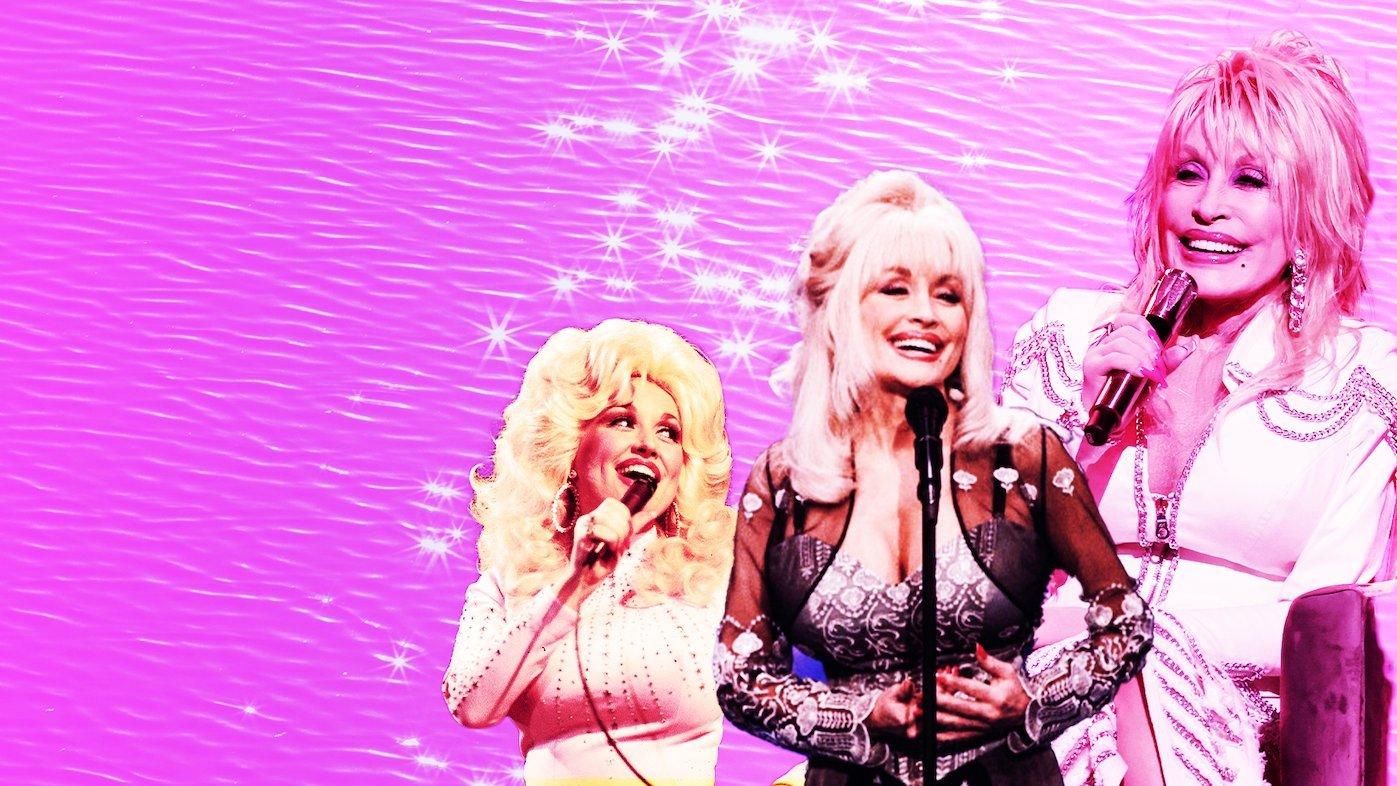
(L-R) Andrew Putler/Redferns, Margaret Norton/NBCU Photo Bank/NBCUniversal via Getty Images, Jason Kempin/Getty Images
feature
Songbook: How Dolly Parton Became The Queen of Country, From Her Songwriting Prowess To Her Effervescent Charm
In honor of the beloved icon's 50th album, 'Dolly Parton & Family: Smoky Mountain DNA,' take a deep dive into the extraordinary career that has helped her conquer the music industry, the acting scene and the world.
"After you reach a certain age, they think you're over. Well, I will never be over," Dolly Parton once declared. "I'll be making records if I have to sell them out of the trunk of my car. I've done that in my past, and I'd do it again."
Just as proficient with the razor-sharp quip as a timeless song, the inimitable country queen has thankfully never needed to rely on such primitive distribution methods. In fact, more than 60 years after Parton first entered the recording studio, the self-proclaimed Backwoods Barbie is shifting more units than ever before: 2023's Rockstar achieved both her highest first-week sales (128,000) and position on the Billboard 200 (No. 3) of her career.
That only boosted Parton's already remarkable worldwide record sales total of over 100 million, and took her tally of Top 10 country albums to 49. Throw in the record-matching 25 No. 1s on Billboards Hot Country Songs chart, three billion streams, and 11 GRAMMY Awards from 54 nominations, and it's clear why she'll forever be known as the Queen of Nashville.
Of course, Parton has had her commercial ups and downs over the years. But the quality of her music has always remained impeccably high, whether the traditional country of her late '60s beginnings, the crossover pop of her early '80s imperial phase, or the eclectic forays into bluegrass, gospel, and good old-fashioned rock 'n' roll that has made her 21st century discography so wonderfully unpredictable.
Further dispelling the title of her first hit "Dumb Blonde," the bulk of Parton's 50 studio efforts have been self-penned or self-produced, sometimes both. Indeed, "Coat of Many Colors," "Jolene," "I Will Always Love You," "9 to 5," and her countless other additions to the Great American Songbook have come from her prolific pen (she's reportedly composed a colossal 3,000 tunes). Yet, as proven by chart-topping renditions of "Heartbreaker," "Old Flames Can't Hold A Candle to You," and "But You Know I Love You," along with covers albums Those Were the Days and Treasures, Parton is just as gifted a song interpreter as she is songwriter.
The legendary singer added yet another album to her discography on Nov. 15, this time recruiting her loved ones for Dolly Parton & Family: Smoky Mountain DNA – Family, Faith and Fables. In celebration of Parton's latest LP, look back at the many phases of her career that have helped make her an enduring icon.
The Country Starlet
Having written hits for the likes of Bill Phillips and Skeeter Davis in her teens, the prodigious Dolly Parton became a chart star in her own right when her 1967 debut album, Hello, I'm Dolly, reached the Top 20 of Billboard's US Top Country Albums chart. Remarkably, her first label, Monument, had initially been hesitant in allowing her to pursue the Nashville sound that would quickly become her forte. Loyal viewers of "The Porter Wagoner Show" were equally skeptical when she replaced favorite Norma Jean on the weekly country show.
However, Parton soon won over audiences with her natural charm, distinctive vibrato, and ability to tell a story in the most engaging, tuneful way possible. Over the next eight years, she continually flitted between collaborative LPs with Wagoner and solo efforts, releasing a dozen of the former and 15 of the latter. Key records include 1969's Top 10 smash My Blue Ridge Mountain Boy, on which she received a writing credit on every song; 1971's Joshua, whose title track gave her the first of many country No. 1s; and its swift follow-up Coat of Many Colors, whose eponymous ballad Parton has cited as an all-time personal favorite.
It was on 1974's Jolene, however, where Parton began to court the mainstream. Both its same-named lead single and future Whitney Houston blockbuster "I Will Always Love You," which she famously wrote on the same day, became much-loved standards, with the former also giving Parton her debut entry on the Billboard Hot 100. 1976's All I Can Do, meanwhile, saw her pick up the first of 54 career GRAMMY nominations (Best Country Vocal Performance, Female). By this point, Parton had outgrown the man who'd helped steer her to country success beyond her wildest dreams. Now, the target was world domination.
Read More: 10 Songs You Didn't Know Dolly Parton Wrote: Hits By Whitney Houston, Kenny Rogers & More
The Genre-Bending Star
While Parton has always kept one foot in country waters, her 1977 first self-produced LP New Harvest... First Gathering – featuring covers of Jackie Wilson's "Higher and Higher" and The Temptations' "My Girl" – kickstarted a genre-hopping streak she continued to pursue throughout the following half-century.
On the same year's follow-up, Here You Come Again, she teamed up with Barbra Streisand cohort Gary Klein for a million-selling, pop-oriented affair whose title track reached a then-career high of No. 3 on the Hot 100. She flirted with disco on 1978's Heartbreaker ("Baby I'm Burning") and, as its Jerry Lee Lewis-inspired title suggests, classic rock 'n' roll on 1979's Great Balls of Fire. Her star was so rapidly rising that mainstream hitmakers Donna Summer ("Starting Over Again") and Carole Bayer Sager ("You're the Only One") queued up to give Parton some of their best works.
Free from the shackles of a major label, Parton delved deep into her love of bluegrass at the turn of the century for a trilogy of albums (1999's The Grass Is Blue, 2001's Little Sparrow, 2002's Halos and Horns) that garnered some of the most glowing reviews of her career. There were also ventures into gospel (2003's post-9/11 response For God and Country), children's music (2017's I Believe in You), and seasonal pop (2020's A Holly Dolly Christmas). Then in 2023, at 77 years young, she embraced her previously hidden rock chick side on the star-studded Rockstar (more on that later).
"I'm willing to try anything," Parton told Newsweek about her impressively eclectic approach. "What's the worst that's going to happen, if I can't do it? So what, at least I tried."
The Triple Threat
Having previously showcased her comedic skills on various TV specials, Parton was gifted the opportunity to star alongside Jane Fonda and Lily Tomlin in 1980's feminist favorite 9 to 5. And she more than held her own alongside the two Tinseltown greats with a pitch-perfect performance as the vengeful secretary Doralee, also scoring a Hot 100 chart-topper with its two-time GRAMMY-winning and Oscar-nominated titular theme.
Parton continued to prove her double-threat credentials throughout the decade and beyond. She earned a Golden Globe nomination for her magnetic turn as brothel owner Miss Mona in 1982's The Little Whorehouse in Texas, while simultaneously adding to the festive canon with "Hard Candy Christmas." She even managed to draw out a relatively listenable vocal from Sylvester Stallone while starring as a club-singing mentor in 1984's country music comedy Rhinestone.
After letting her acting do all the talking in 1989 weepie Steel Magnolias, Parton returned to double duty in 1991 TV movie Wild Texas Wind, 1992 rom-com Straight Talk, and 2012 gospel drama Joyful Noise. (All the while, she continued adding to her discography, releasing a dozen solo albums over the same period). While in 2021, she inched closer to the coveted EGOT when Dolly Parton's Christmas on the Square was awarded the Emmy for Outstanding Television Movie.
Having conquered Hollywood, Parton switched her attention in the mid-1980s to the theme park she cleverly rechristened Dollywood. Formerly known as Silver Dollar City, the attraction near her East Tennessee hometown of Pittman Center is only part of the star's business portfolio which also includes waterpark Dollywood's Splash Country, the Dream More Resort and Spa, and amusement park Dolly Parton's Stampede. Thanks to her shrewd business investments under the umbrella of The Dollywood Company – and let's not forget her forays into cake mixes, fragrances, and canine apparel – the singer has amassed a reported fortune of $450 million.
The Philanthropist
Of course, Parton has often used the vast wealth she's worked so hard to accrue for the greater good. In the mid-'80s, she set up the Dollywood Foundation with the main goal of increasing children's literacy through its Imagination Library initiative.
Inspired by her father, who was never taught how to write or read, the program has since been adopted by more than 1,600 communities across the world, with approximately 3.1 million children receiving a new book each month from birth to kindergarten. By October 2024, the Imagination Library had sent out an astonishing 254 million books!
That's far from Parton's only philanthropic endeavor, though. She's also helped to raise funds for various HIV/AIDS-related charities and the American Red Cross, fought for LGBTQIA+ rights (her 1991 song "Family" celebrated same-sex families), and donated $500,000 to a Sevierville cancer center to honor the physician, Robert F. Thomas, who helped bring her into the world.
Read More: 5 Ways Dolly Parton Has Promoted Peace & Global Unity
In more recent years, Parton has made headlines for her relief efforts in aid of various natural disasters. In 2016, she organized her own telethon for the victims of the Great Smoky Mountain Wildfires, raising $9 million as a result. She also donated a seven-figure sum to Vanderbilt University Medical Center during their research into the early days of the COVID-19 pandemic, a period she reflected upon on single, "When Life Is Good Again." And in 2024, she pledged $2 million to help with the recovery of her Tennessee hometown in the wake of Hurricane Helene.
"I get paid more attention than maybe some others that are doing more than me," a modest Parton told The Tennessean in 2022 about her status as the music industry's most altruistic figure. "I just give from my heart. I never know what I'm going to do or why I'm gonna do it. I just see a need and if I can fill it, then I will."
The National Treasure
Parton proved she still had plenty to offer when she returned to pure country in the late 2000s. She achieved her highest peak on the Billboard 200 at the time with the first release through her own Dolly Records label, 2008's Backwoods Barbie (No. 17), only to eclipse it just six years later when Blue Smoke made the Top 10. Soon after, she had 180,000 festivalgoers eating out of the palm of her hands when she performed classic hits including "Coat of Many Colors," "Here You Come Again" and "9 to 5" in the Glastonbury Legends slot.
A stage musical adaptation of 9 to 5 that reached both Broadway and the West End (and earned her another GRAMMY nod) helped to extend her legacy, too. As did 2016's Pure and Simple, which spawned her biggest U.S. tour for 25 years and became her first country chart-topper since 1991, and 2022's Run Rose, Run, a companion album to a thriller she co-wrote with novelist James Patterson.
If any further proof was needed of Parton's national treasure status, then she also picked up Lifetime Achievement awards at the 2011 GRAMMYS and 2016 CMAs. And although she took some persuading, the star finally accepted her place in the Rock and Roll Hall of Fame in 2023, where she also performed her 1991 hit "Rockin' Years" and a star-studded version of "Jolene."
Even now she's approaching her eighties, Parton has no plans to hang up her towering high heels. "I would never retire," she told Greatest Hits Radio in 2023. "I'll just hopefully drop dead in the middle of a song on stage someday, hopefully, one I've written."
The Beloved Collaborator
Few artists have embraced their collaborative spirit more than Parton. She recorded 12 studio albums with mentor Porter Wagoner during their stint as country music TV's golden duo; a 13th was released following a legal dispute five years after their fruitful partnership came to an end.
She famously shared her considerable talents with a slightly more hirsute crooner, Kenny Rogers, on their worldwide chart-topper "Islands in the Stream" and 1984 LP Once Upon a Christmas. And she formed not just one but two iconic supergroups, firstly teaming up with Emmylou Harris and Linda Ronstadt for 1987's Album Of The Year Grammy nominee Trio and its 1999 sequel, and then Loretta Lynn and Tammy Wynette for 1993's Honky Tonk Angels.
Parton also duetted on country hits with Willie Nelson ("Everything's Beautiful (In Its Own Way)"), Smokey Robinson ("I Know You By Heart"), and James Ingram ("The Day I Fall in Love") during the same period. She then continued to team up with her fellow veterans throughout the '00s and '10s including Judy Collins (a cover of Joni Mitchell's "Both Sides Now"), Rod Stewart (festive standard "Baby, It's Cold Outside"), and Yusuf Islam ("Where Do The Children Play?").
But Parton also started working with the younger generation of artists who'd grown up listening to her music, too — and not just in the country realm. She guested on Norah Jones' sophomore Feels Like Home, covered one of her signature hits "Jolene" with a cappella vocal group Pentatonix, and even teamed up with Mr. Worldwide himself, Pitbull, on party anthem "Powerful Women."
She seems particularly keen to pass the baton on to her goddaughter, Miley Cyrus; Parton co-penned (and featured on) a track for the two-time GRAMMY winner's rootsier sixth LP, Younger Now ("Rainbowland"), invited her to perform on seasonal album A Holly Dolly Christmas, and joined her in a rendition of "Wrecking Ball" for Rockstar. The latter is unarguably Parton's collaborative magnum opus, a 30-track foray into rock featuring a who's who of both classic (Steven Tyler, Stevie Nicks) and contemporary artists (Lizzo, Chris Stapleton) audibly delighted at the opportunity to sing with a living legend.
In 2024, Parton kept things in the family with Smoky Mountain DNA — Family, Faith and Fables, another musical epic — this time, rooted in the sounds of her heritage — featuring her niece Heidi, cousin Richie, and, thanks to some vintage audio recordings, her late grandfather Reverend Jake Owens.
"I cannot believe that it has been 60 years this month since I graduated from Sevier County High School and moved to Nashville to pursue my dreams," Parton remarked while announcing its release.
As one of the world's best-loved artists both inside and outside of the country world, she undoubtedly fulfilled them in iconic, rhinestone-studded style.
More Of The Latest Country Music & News

Living Legends: Brooks & Dunn On How 'Reboot II' Is A Continuation Of "Winging It From Day One"
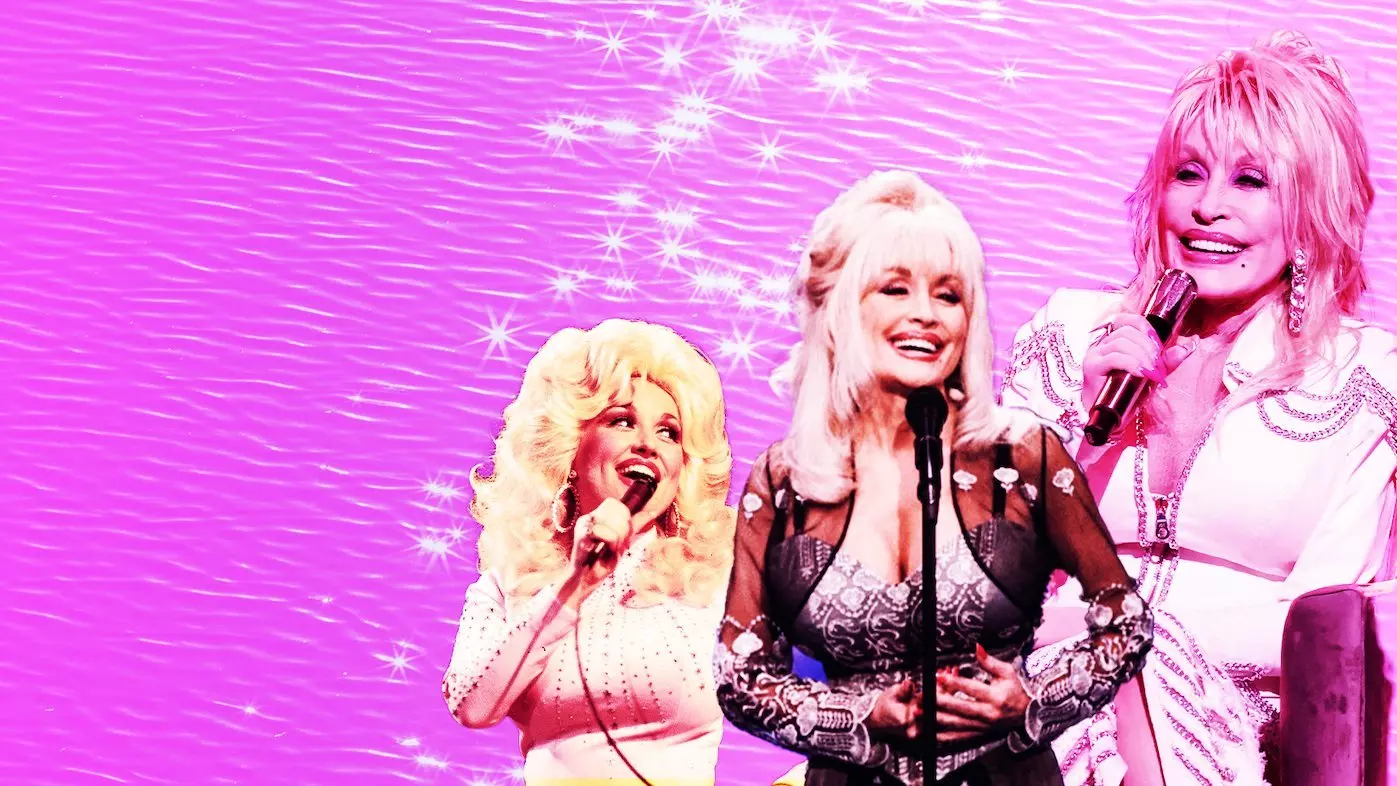
Songbook: How Dolly Parton Became The Queen of Country, From Her Songwriting Prowess To Her Effervescent Charm
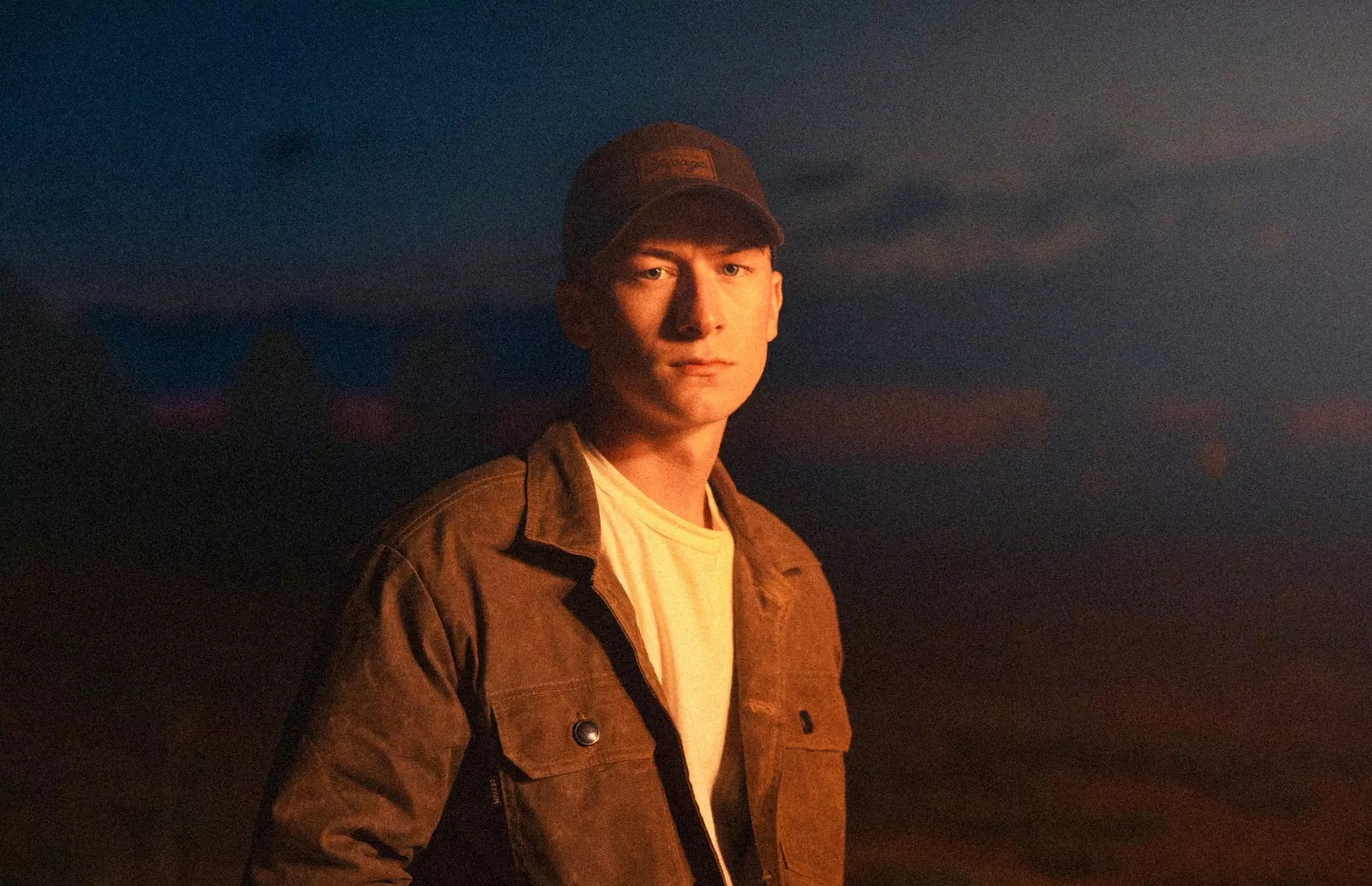
With 'Restless Mind,' Sam Barber Shows He's Wise Beyond His Years
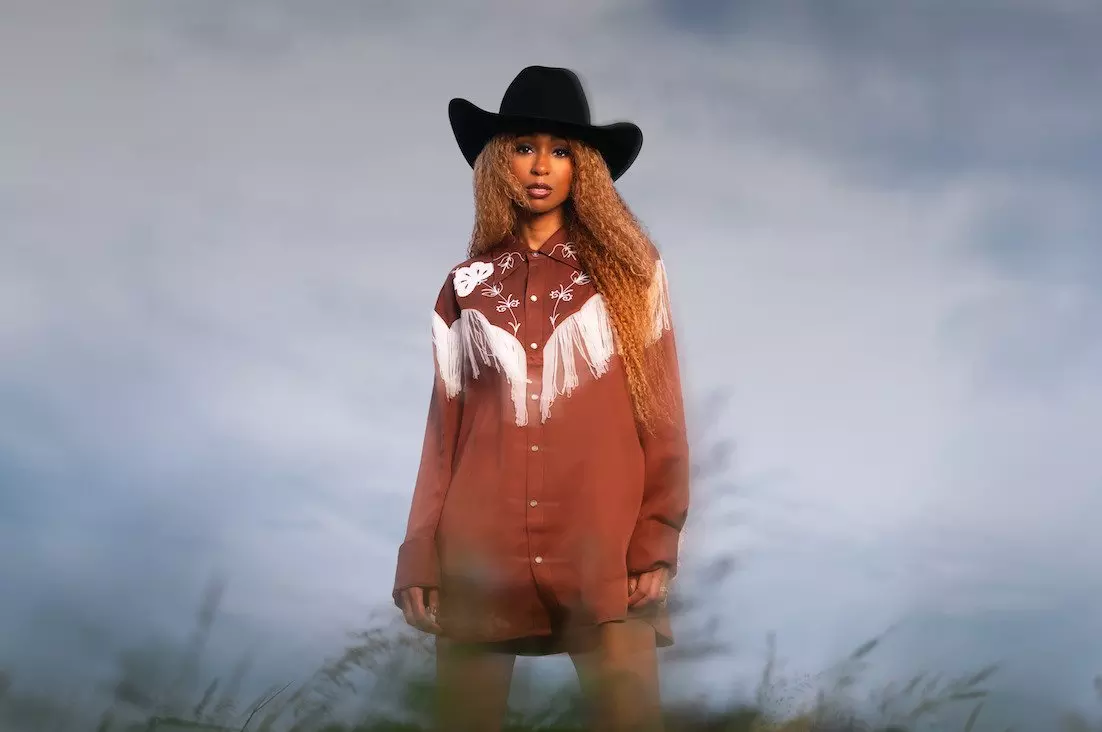
How Tiera Kennedy's 'Rooted' Helped Her Turn Rejection Into Empowerment
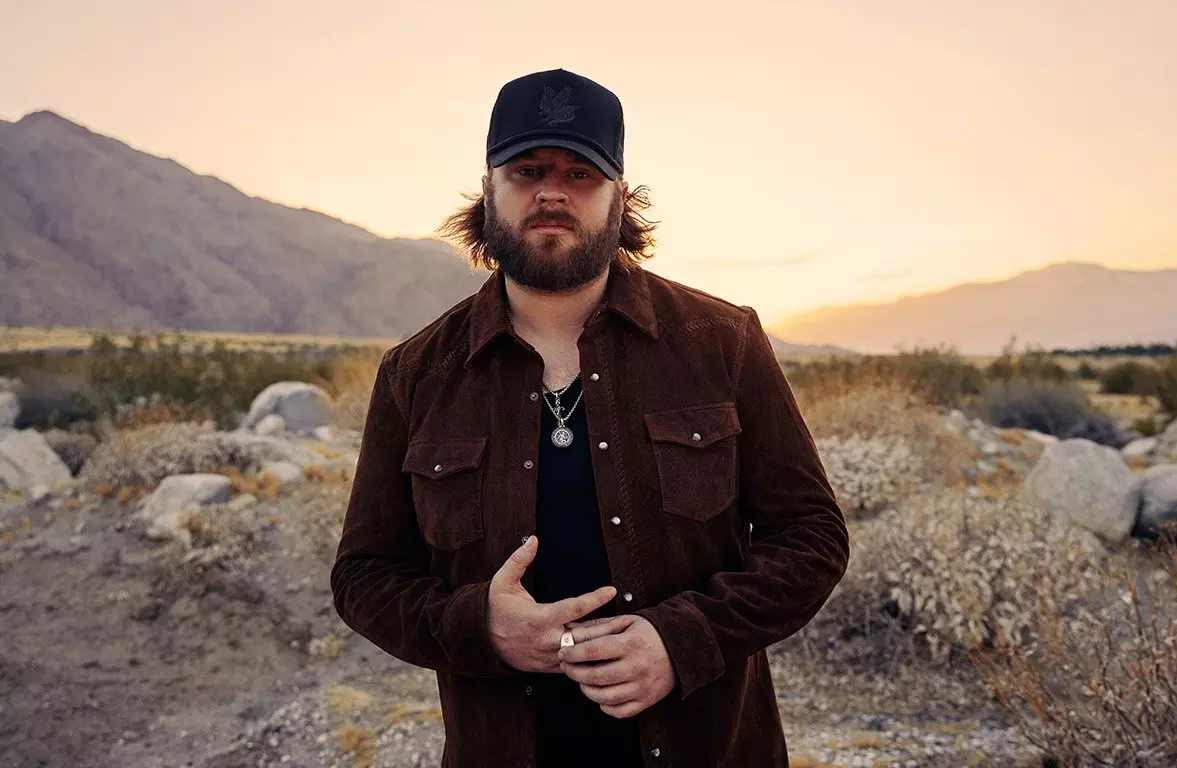
Nate Smith On New Album 'California Gold,' The Country-Rock Movement, & What "Making It" Means To Him
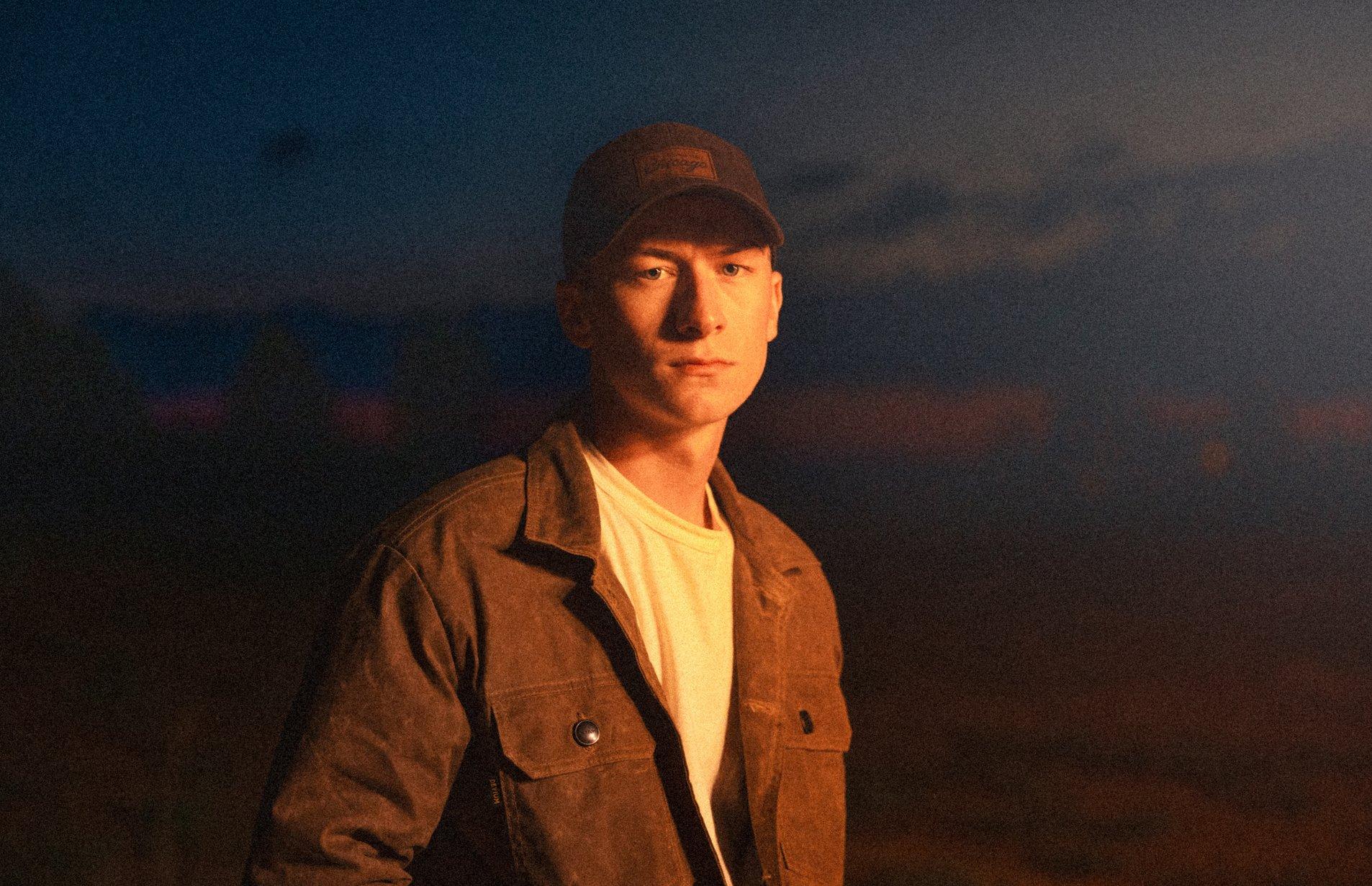
Photo: Outlaw Foundry
feature
With 'Restless Mind,' Sam Barber Shows He's Wise Beyond His Years
Just five years into his career, the rising country star delivered a 28-song debut album that furthers his prowess as one of the genre's most compelling young voices.
When Sam Barber wrote his first song, he had no idea how far it would take him. Just 16 at the time, the country singer/songwriter penned "Straight and Narrow," an aching, clear-eyed plea for resilience that revealed his old soul — and proved he's a star on the rise.
"Straight and Narrow," which appeared on Barber's 2023 EP, Million Eyes, was the now 21-year-old's first brush with viral success, racking up streams and drawing in fans who were intrigued by the young guitar slinger who seemed to appear out of nowhere. The song would eventually land on Billboard charts — in both rock and country — and helped Barber earn a Grand Ole Opry debut and a partnership with Atlantic Records.
Barber's latest milestone is his debut album, Restless Mind, which arrived Nov. 1. The double LP shows the true breadth of his artistry, which is grounded in raw, narrative songwriting — like that of two of Barber's musical idols, Zach Bryan and Tyler Childers — and gritty, spare production that puts the listeners' focus squarely on Barber's emotive, bellowing voice.
Barber says he originally planned to record around a dozen songs for the LP, but instead, Restless Mind comprises a whopping 28 tracks. While that volume was intentional, Barber wasn't trying to keep up with the double-album trend country music has seen as of late — he simply wanted to please his fans.
Though he just began sharing his music in 2021, Barber's rapidly growing fan base — who first loved him for his covers on TikTok — continuously asked for more music. He felt his listeners deserved as much from him as he could muster for his debut album, and as he tells GRAMMY.com, "I want them to know I am working very hard."
Barber describes himself as a prolific writer and that it's his love for songwriting, specifically, that motivates him. Restless Mind is "an accumulation of my entire music career up to this point," Barber says, adding that some material comes from his teen songwriting years while other songs are just months old.
At the helm of Restless Mind was producer Eddie Spear, whose creative partnership with Barber began in 2022 after Spear DMed the singer. As one of Zach Bryan's frequent collaborators, Spear's desire to work with Barber wasn't just "surreal" for the budding star, but also validated the work he'd created up to that point. Spear's involvement also helped Barber see his music in a new light.
"Eddie made my songs something that I never could have imagined, just putting extra pieces," Barber says. "And the people I met in the room… It opened my mind to a completely different world of music that I didn't even know was a thing."
One such world is pop. Barber and GRAMMY-winning songwriter Amy Allen, whose extensive list of credits includes cuts for pop stars like Harry Styles and Sabrina Carpenter, met at a co-write and found unexpected creative common ground. Though he initially felt skeptical that they could bridge the gap between their different styles, Barber left their session (which spawned Restless Mind's "Thought of You," as well as a few other unreleased songs) with an expanded sense of what his music could be.
Restless Mind opens with the honest and tender track "Man You Raised," inspired by Barber's close relationship with his mother. After sharing a snippet of a voicemail from her, Barber promises his mother not to let the freewheeling lifestyle of a touring musician get the better of him. A singer who sometimes favors feeling over precision, Barber wrings every last drop of emotion from the lyric, a move that characterizes the rest of the album.
While 28 tracks can be daunting, Restless Mind is thoughtfully sequenced, with other bits of scene-setting audio sprinkled throughout and offering natural resting points. "G-PA," for example, is a clip of Barber's grandfather speaking about how the singer's "mind is always on the move," and sets up the Avery Anna-featuring title track, which offers one of Barber's most haunting vocals.
Another highlight is "Bet on My Ghost," which takes cues from grunge and alt-rock with its droning opening riff and Barber's garbled delivery. "Down the Road" lightens the sonic mood, with a driving beat and rambling riff illustrating the restlessness at the heart of the lyric. Barber closes the LP with "You Know I Know," an ambivalent song about existential exhaustion that makes a drastic musical shift in its final minute — ending Restless Mind in both poignant and captivating fashion.
Barber's live show is equally as compelling as his music, and he suggests that time on the road has been especially educational as he navigates the ins and outs of both stardom and live performance. Before kicking off his headlining Restless Mind Tour in September, Barber has spent 2024 playing other headlining gigs as well as festival slots at Stagecoach, Railbird and Lollapalooza. And last year, he had the chance to learn from Ed Sheeran and Bruce Springsteen, both of whom Barber opened for on select dates.
"Ed wanted to show me that, no matter how large or big you are, people thinking you are just a good human being goes the longest way," Barber recalls. "It will get you as far as anything else."
Watching Sheeran perform was equally as impactful as his words of wisdom. "The way that he would go up on stage with just a guitar and completely control a crowd, the things he said and the emotion he could put out — everyone was dead silent, and it showed me that you don't need that much," Barber adds. "You just have to be a good person, [be] strong and know yourself. People see that."
Barber may rub elbows with big-name stars these days, but he says it's his family who truly fuels his creative fire. In fact, his late great-grandfather's musical history was what first inspired him to make music, and it was his mother who encouraged him to drop out of college in favor of pursuing music.
"My great-grandpa had played in bars and stuff," Barber says. "He had his old guitar in my parents' house, and that's what I picked up for the first time. I never got to meet him, unfortunately, but knowing that there was music in the family, it drove me."
He also calls his grandfather, who is still living, one of the "biggest supports and motivations" — and may be one of the biggest reasons Barber is wise beyond his years.
"He's the hardest working man I've ever met in my life," Barber adds. "He definitely showed me that anything is possible… He has nothing to do with music, but just seeing a man like that, it drives you every day. He's a wise man, holding a lot of very smart things and aspects to life that I would have never thought of without his encouragement."
As evidenced on "G-PA," Barber's grandfather may never have imagined all of this success for his grandson, either, but sometimes "straight and narrow" paths lead to unexpected places. Landing a hit with the first song you write is a dream come true for most aspiring artists — but for Barber, it's just the beginning.
Latest News & Exclusive Videos

How Major Lazer's 'Guns Don't Kill People…Lazers Do' Brought Dancehall To The Global Dance Floor

YOASOBI Performs "Idol" | Global Spin

'Wicked' Composer Stephen Schwartz Details His Journey Down The Yellow Brick Road

GRAMMY Museum Expands GRAMMY Camp To New York & Miami For Summer 2025

Living Legends: Brooks & Dunn On How 'Reboot II' Is A Continuation Of "Winging It From Day One"
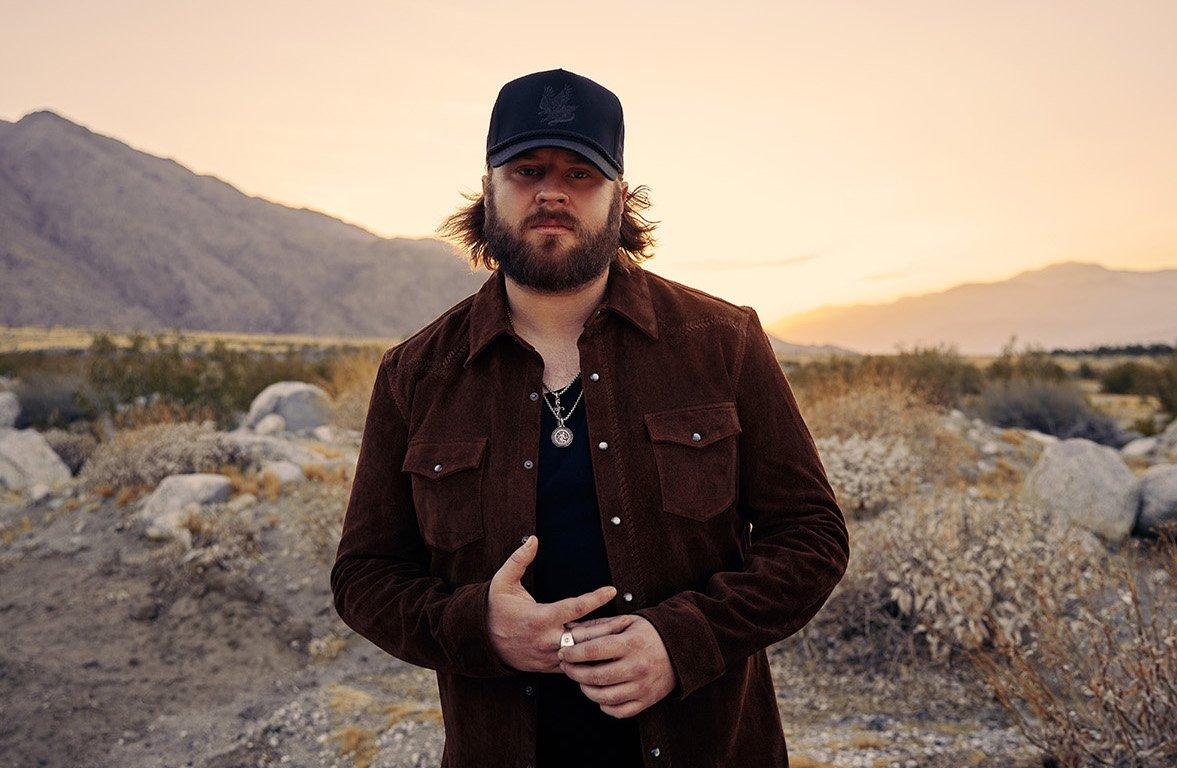
Photo: Kaiser Cunningham
interview
Nate Smith On New Album 'California Gold,' The Country-Rock Movement, & What "Making It" Means To Him
After a historic start to his career, country star Nate Smith aims to dig deeper into his California roots — personally and musically — with his second album.
Since releasing his explosive debut single, "Whiskey On You," in May 2022, there's been no question that rock music is a core influence for Nate Smith. The sizzling breakup anthem, aided by his gravelly snarl, climbed to the top of the Billboard and Mediabase country charts for two consecutive weeks by January 2023. Not only did the feat indicate that there's an audience hungry for more of his country-rock concoctions, but it also hinted that Smith was one of country music's brightest new stars.
The California native's follow-up single, "World On Fire," solidified just that, leading Billboard's Country Airplay chart for 10 weeks at the top of 2024, which ties Morgan Wallen for the longest run in the chart's history. And just a few months after he was awarded New Male Artist of the Year at the Academy Of Country Music Awards, Smith notched a history-making third multi-week Mediabase No. 1 with "Bulletproof," the lead single from his sophomore album, California Gold — proving that he shows no signs of slowing down.
The rest of the 16-song collection expands on the raw storytelling and guitar-driven sounds of his self-titled 2023 debut, unapologetically leaning even further into the sounds and stories that made him. Whether it's intoxicating head-bangers, tender love songs, heart-crushing ballads or an EDM-inspired moment or two, California Gold shows that Smith is just as impactful with a poignant downtempo moment as he is with the high-octane energy of his hit singles.
Ahead of the album's arrival, GRAMMY.com caught up with Smith to hear about his nostalgic rock influences, how he's evolved as an artist, and the most meaningful moments of his career thus far.
California Gold has a ton of rock influence in it, which was a shift we first heard on your Through the Smoke EP earlier this year. Can you explain how you got pointed down this path of rock-infused country?
It just sort of naturally happened. I don't think it's a good idea whenever you're like, "I'm going to try to go for this type of sound." I think you should really lean into your influences and what you like to hear.
I grew up with a lot of rock in the early 2000s and late '90s. I just loved pop rock a lot, like Lifehouse, Hoobastank, Linkin Park, and bands like that. I've always liked the epicness of it. I love emo a lot, too, like The Used and Story of the Year. All those bands and all those rock sounds had really catchy choruses. I just like the way that rock moves me, I like the way it makes me feel.
My music has always been really diverse. I play with a variety of sounds because I'm such a fan of music, but I'm not shying away from my rock side. I feel like this record unapologetically leans into it more. I would get a mix back from Lindsay Rimes, my producer, and I'd be like, "There's not enough guitar. It needs to be heavier." We would add and add, or re-work verses so that things made sense and hit hard. I was really involved in the production side of this album.
You've recorded two duets with pop-punk princess Avril Lavigne, both the remixed version of "Bulletproof" and a song on this album, "Can You Die From A Broken Heart." What has it been like to work with her?
We've become really good friends, but "Can You Die From A Broken Heart" was the first song that I sent to her. She was like, "I kind of want something more uptempo, but I like it." Eventually she decided to cut both songs.
The moment I heard this song, I loved it right away. The person I thought of first was Sam [Harris] from X Ambassadors, because he's got this growly, hoarse voice that I thought would sound really good on it. It didn't make sense for him at the time, but the more I listened to it, I was like, Wait a second. I think there should be a female on this song, and I think it should be Avril Lavigne. It was before I knew her at all, so we AIed her voice onto it, just to see what it would sound like. It was just a dream at that point. We sort of manifested it, but then my team sent it to her and she said yes.
Artists like HARDY, Jelly Roll, Koe Wetzel, and countless others have been going down this same country-rock road. Do you think that says anything about the genre these days or the relationship between the country and rock formats?
I think there's a lot of different sounds in country music right now. There's Red Dirt, Texas neotraditional kind of stuff, which is its own lane. Then there's this rock and country thing, which is people like me, Bailey Zimmerman, Corey Kent, Jelly Roll, and all these different artists. We all have our own kind of thing within that, and there's extremes and more moderate sides of that. There's also the trap, Morgan Wallen stuff, which has Graham Barham and Tucker Wetmore. I think the main thing is to not really think about what "lane" you want to be a part of, but to just lean into your own influence.
I definitely think that there's a movement happening with the rock thing, unintentionally and all at the same time. It kind of makes me wonder if the universe is pushing it in that direction. I don't really know, but it seems like, collectively, we're all thinking the same thing.
You've said that this album is like an evolution, not just of your craft but of you, too. Can you elaborate on that?
When you're making your first album, you're trying to make it as good as you can. You've had some of these songs for a long time and you're just doing your best, but you may compromise in certain ways. Like maybe I didn't really like that guitar part, but I was too afraid to speak up at that time. Or maybe I didn't like my vocal comp on a certain line, or maybe the song wasn't even right for me, but I did it because the team was excited.
With this project, it's an evolution of me as a person, because I've completely listened to everything that I felt convicted about while making this album. Whether it was my vocal parts, the way that the harmonies sounded, or when the delay hits on the vocal, I was so particular about everything with this record. It was really hard to pick the songs, too, because I wanted to make sure they were the right songs. We got a couple little Hail Marys at the end, because we wrote "Perfect," "Want Me Back" and "California Gold" the day before we did our final cut of everything.
It is an evolution, though, and it's really just more. I always say this on stage, but my rockier stuff — the songs like "Bulletproof," "World On Fire" and "Whiskey On You" — you're getting more of that with this album. With the ballads, they're way more heartbreaking, lyrically and melodically.
We're also stretching the sound. On songs like "Hurtless," you can almost picture yourself in a dusty Desperado looking for an oasis in the desert. There's just an evolution of the sound in here, and there's going to be more of that in the future within the next album. Like I said, I'm a fan of music and just love to explore it.
What does California Gold mean to you? Why was that the name that stuck out for this project?
I was talking to my friend Dana, who makes all my guitar straps, as well as straps for Mitchell Tenpenny, Morgan Wallen, Luke Combs, and a bunch of people. She lives in California and I was just checking in on her. She said, "We finally got some rain, which is California gold, you know?" I just thought that was such a good name for an album and it just felt right.
I love that California's in there, which is where I'm from. Gold, obviously, can mean gold rush, but also people don't know the part of California that I'm from. They know the beach and LA. I'm from a small town called Paradise in Northern California, which is a rural community. There's farming all over and rednecks everywhere. It's a hard-working, blue collar, country community.
The song "California Gold" has a lot of easter eggs, like Honey Run River, which is where we would hang out and smoke Prime Times. It just makes me think of growing up. It's so nostalgic, and it's also an evolution of the sound of "Sleeve" and "Oil Spot" from the last record. Both of those songs have that open road, driving down the highway, nostalgia. I think every album is going to have to have one of those songs for me.
With everything you've accomplished in just a few short years, what comes to your mind when you look back at everything from your career thus far?
I don't really think about it that much. What I think about the most is living in the moment.
I'm thankful for all those things, like when I got New Male Artist of the Year [at the 2024 Academy of Country Music Awards], that was a very surreal moment. Knowing that the songs are connecting and getting No. 1s, I celebrate those moments. They're really awesome, but I don't dwell on them because my identity isn't in that.
My identity is in how I treat my neighbor and my team. For me, when we have those wins, I get to become a better resource for the people around me. I get to be a river and make sure that everyone's taken care and able to pay their bills. That's the true success for me, is that my team is taken care of.
My birthday was the first show of the Through the Smoke Tour in Portland. My whole family flew out and I was able to buy dinner for like 20 people at the table to celebrate. That, to me, is "making it." That's what I dwell on and that's what makes me feel successful.
My next question was going to be what are a few of those milestone moments that really stick out to you and enforce that feeling of "making it."
Those are the milestones. Having my family come out and being able to see everybody. My band is on salary now, which is a milestone for me. People heavily connecting to the songs in an emotional way is a milestone for me. They show up to shows, which is a milestone. I'm losing weight and taking care of my body. That's a milestone.
I know we still have a few months, but what are you looking forward to in 2025 — that you can tell us about, at least?
I will say we got a very, very big tour next year as direct support for a very big artist. It's someone that I love and look up to, and I just can't wait till we can announce that. Getting a direct support slot is a huge deal.
We will be going to the UK, which we're putting together right now, and we'll be going to Norway. I'm Norwegian, and I believe I have relatives there, so I've asked for three days to hang out there. We're gonna go see the world a little bit!
I've got some time off from December to the beginning of January. I've got a couple of shows in January and February, but I'm gonna write and record my next album. It's gonna be crazy, but I'm also gonna get some rest. I'm looking forward to the rest.
Latest News & Exclusive Videos

How Major Lazer's 'Guns Don't Kill People…Lazers Do' Brought Dancehall To The Global Dance Floor

YOASOBI Performs "Idol" | Global Spin

'Wicked' Composer Stephen Schwartz Details His Journey Down The Yellow Brick Road

GRAMMY Museum Expands GRAMMY Camp To New York & Miami For Summer 2025

Living Legends: Brooks & Dunn On How 'Reboot II' Is A Continuation Of "Winging It From Day One"
